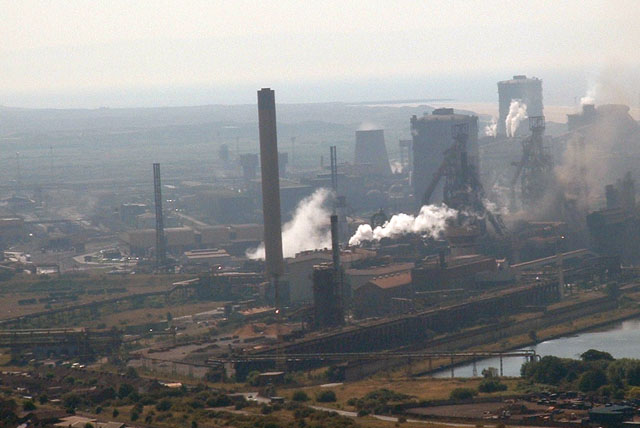After months of speculation TATA Steel has confirmed plans to close blast furnaces at its plant in Port Talbot, South Wales, with the loss of thousands of jobs at its Port Talbot plant.
The town of Port Talbot in Wales was built around steel production with generations working at the huge plant for more than a century. But the plant is responsible for up to 2% of the UK’s total CO2 emissions. Indian owners TATA bought the plant in 2007 and say they will install new electric arc furnaces processing scrap steel but with fewer workers.
Tata Steel, in a statement said: “Tata Steel today announced it will commence statutory consultation as part of its plan to transform and restructure its UK business.
“This plan is intended to reverse more than a decade of losses and transition from the legacy blast furnaces to a more sustainable, green steel business.
“The transformation would secure most of Tata Steel UK’s existing product capability and maintain the country’s self-sufficiency in steelmaking, while also reducing Tata Steel UK’s CO2 emissions by five million tonnes per year and overall UK country emissions by about 1.5%.”
Under Tata’s plans, Port Talbot’s two high-emission blast furnaces and coke ovens will close in a phased manner, with the first blast furnace closing about mid-2024 and the remaining heavy end assets winding down during the second half of this year.
The proposal also includes a wider restructuring of other locations and functions across the company, including the intended closure of its continuous annealing processing line (CAPL) in March 2025.
Unions have accepted the closure must happen but have not ruled out industrial action and say they have offered an alternative closure plan. They say their plan, which has been rejected by TATA, will cost ‘a few millions of pounds’ more and they now believe the government should step in with cash to soften the blow.
It’s estimated that by moving away from the plant’s existing coal-powered blast furnaces to a greener form of steel-making – using scrap metal as fuel – it could cut the UK’s entire carbon emissions by around 1.5% at a stroke and Wales’ greenhouse gas emissions by around 22%.





